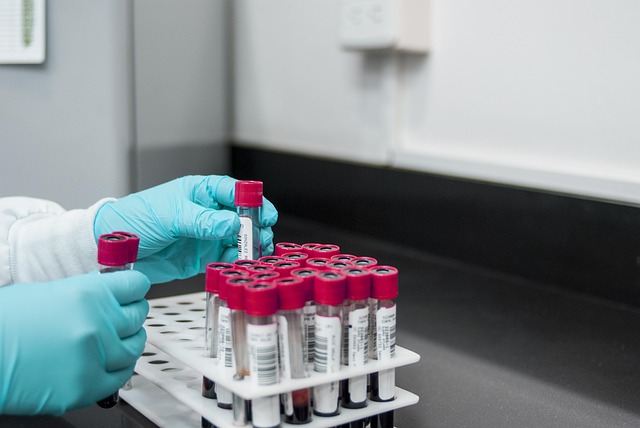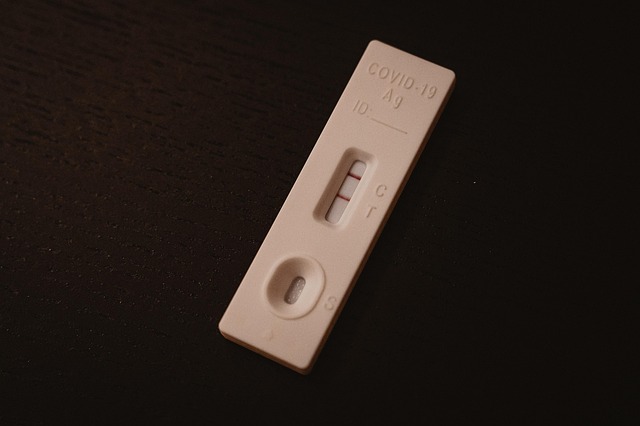Hormone analysis using tests like the Iron Blood Test (IBT) in the UK is vital for diagnosing reproductive health issues such as infertility, menstrual disorders, and polycystic ovary syndrome (PCOS). IBT identifies iron levels crucial for fertility, addressing deficiencies that impact reproductive outcomes. Interpreting hormone results enables healthcare professionals to tailor personalized treatment plans including hormonal contraception or lifestyle adjustments to improve fertility success rates.
“Uncovering the intricate mysteries of reproductive health starts with hormone analysis, a powerful tool for identifying underlying issues. In the UK, understanding the significance of iron blood tests is pivotal in fertility assessment, offering crucial insights into potential problems. This article delves into the world of hormone analysis, focusing on iron blood tests, their role in reproductive health, and how interpreting results can guide effective treatment strategies.”
- Understanding Hormone Analysis for Reproductive Health
- Why Iron Blood Tests Are Crucial in UK Fertility Assessment
- Interpreting Results: Unlocking Insights into Reproductive Issues
Understanding Hormone Analysis for Reproductive Health

Hormone analysis plays a pivotal role in diagnosing and managing reproductive health issues. This advanced diagnostic tool involves assessing various hormones circulating in the body, offering insights into the intricate interplay that regulates fertility and overall reproductive function. By examining hormone levels, healthcare professionals can identify imbalances or abnormalities that may underlie infertility, menstrual disorders, polycystic ovary syndrome (PCOS), and other conditions affecting reproduction.
In the UK, one common test used to evaluate reproductive health is the iron blood test. This analysis measures the levels of specific hormones, such as estradiol, progesterone, and testosterone, which are crucial for maintaining a healthy menstrual cycle and fertility. Accurate hormone analysis enables healthcare providers to tailor treatment plans, including hormonal contraception, medication, or lifestyle interventions, to address the underlying hormonal imbalances and improve reproductive outcomes.
Why Iron Blood Tests Are Crucial in UK Fertility Assessment

In the UK, hormone analysis plays a pivotal role in fertility assessment, and one key component is the Iron Blood Test (IBT). This test is crucial as iron levels can significantly impact reproductive health. Low iron or anaemia is often associated with reduced fertility and adverse pregnancy outcomes. The IBT helps identify this issue early on, allowing for prompt interventions to optimise fertility.
By assessing iron status, healthcare professionals can uncover potential barriers to conception. In the context of the UK’s diverse population, understanding individual iron levels is essential as dietary habits and cultural practices can vary widely, affecting iron intake. Therefore, the Iron Blood Test serves as a vital tool in personalising fertility treatment plans within the UK healthcare system.
Interpreting Results: Unlocking Insights into Reproductive Issues

Interpreting the results of hormone analysis is a crucial step in understanding and addressing reproductive issues. Each hormone plays a vital role in the intricate dance of fertility, and imbalances can offer valuable insights into underlying problems. For instance, elevated levels of luteinizing hormone (LH) may indicate ovulatory dysfunction, while low estrogen readings could suggest impaired egg quality or early menopause.
In the UK, an Iron Blood Test is often included in comprehensive hormonal assessments, as iron deficiency is a common cause of anemia, which can negatively impact fertility. By carefully analysing these results, healthcare professionals can identify specific reproductive challenges and tailor treatment plans accordingly. This personalised approach maximises chances of success, whether it’s through lifestyle adjustments, medication, or advanced assisted reproduction techniques.
Hormone analysis, particularly through Iron Blood Tests in the UK, offers invaluable insights into reproductive health. By understanding these results, individuals and healthcare professionals can navigate potential issues effectively. This comprehensive approach, focusing on key indicators like iron levels, plays a pivotal role in fertility assessment and treatment, ultimately enhancing chances of successful reproduction. For those seeking to unravel complex reproductive mysteries, embracing hormone analysis is a powerful step forward.
